Due to the economic effects of the pandemic, «Albufeira had everything to be in a situation of social tragedy, had it not been for the intervention» in a network of the City Council, Private Institutions of Social Solidarity and public bodies. The words are from Valdemar Saleiro, president of the António da Silva Leal Foundation, one of the guests at the Albufeira Summit, which began yesterday afternoon and continues until Saturday, the 10th.
But the crisis created by the almost total stoppage of tourism and related sectors, which are the basis of the Algarve's economy in general, and Albufeira's in particular, may not yet hit bottom. In the first panel, dedicated to Social Action, Carlos Santos, president of the Albufeira Humanitarian Solidarity Association (AHSA), said he fears "that an even deeper crisis will come."
“If the summer doesn't bring us some economic dynamics, things at a social level can get even more complicated in the county. And I tell you that the situation is already complicated!”, added the leader of the AHSA.
At the opening of this Albufeira Summit, José Carlos Rolo, mayor of Albufeira, had already highlighted this, recalling that the municipality supported «everything that was possible to support and we will certainly be here to support even more».
"We did everything possible to support companies, so that they remain active and open doors", "we encouraged the circular economy", he added.
And, stressed the mayor, "if we hadn't done it, when we resumed the activity, we would only have ghosts in the business fabric of Albufeira".
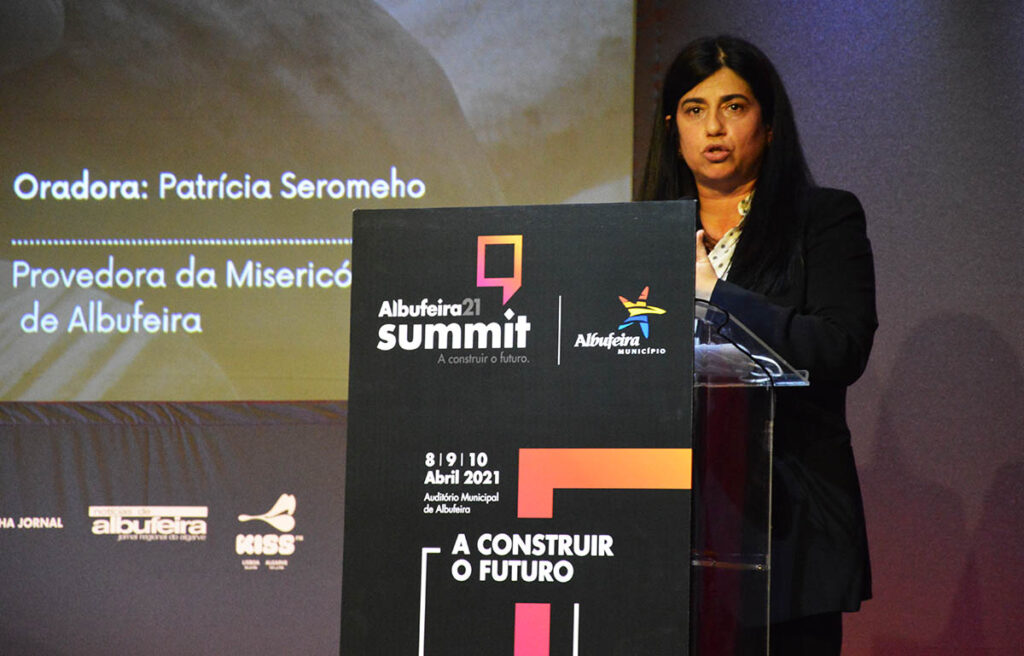
Another speaker on the panel on Social Action, Father Pedro Manuel, president of the Parish Center of Paderne à Pessoa, highlighted, in turn, the implications that the pandemic is having "on the mental health of users, families and employees", defending that, now and in the future, it will be necessary to "respond to new needs".
Perhaps for this reason, Patrícia Seromenho, provider of the Santa Casa da Misericórdia in Albufeira and the first speaker of the day, had already said that it was necessary to move from “social action” to “social intervention”.
Patrícia Seromenho listed the weaknesses of a municipality that is too dependent on a single economic activity, Tourism, stressing that two of the main problems are “unqualified workers” and “seasonal employment”. But also the “business fabric needs to be requalified”, he defended.
In the near future and in the post pandemic, it is necessary to know «how we organize ourselves to respond» to issues such as unemployment, «which has increased», to «mental health problems, which have increased», «to the community that ages every day » and to which it is necessary to give an answer that does not pass only, or mainly, through «institutionalization».
The mayor of Albufeira, at the opening of the Summit, had already explained that «the reason for organizing this event is to think about the future». From the intervention of more than 80 invited specialists, from the most varied areas, what is intended, defended the mayor, is to «listen and learn from those who know more than we do».
Now that the resumption of economic activity is approaching, José Carlos Rolo guaranteed: «we are ready to move forward». It is that, he underlined, «Albufeira has the responsibility to be prepared to have a real offer as soon as the lack of confinement, even partial, occurs».
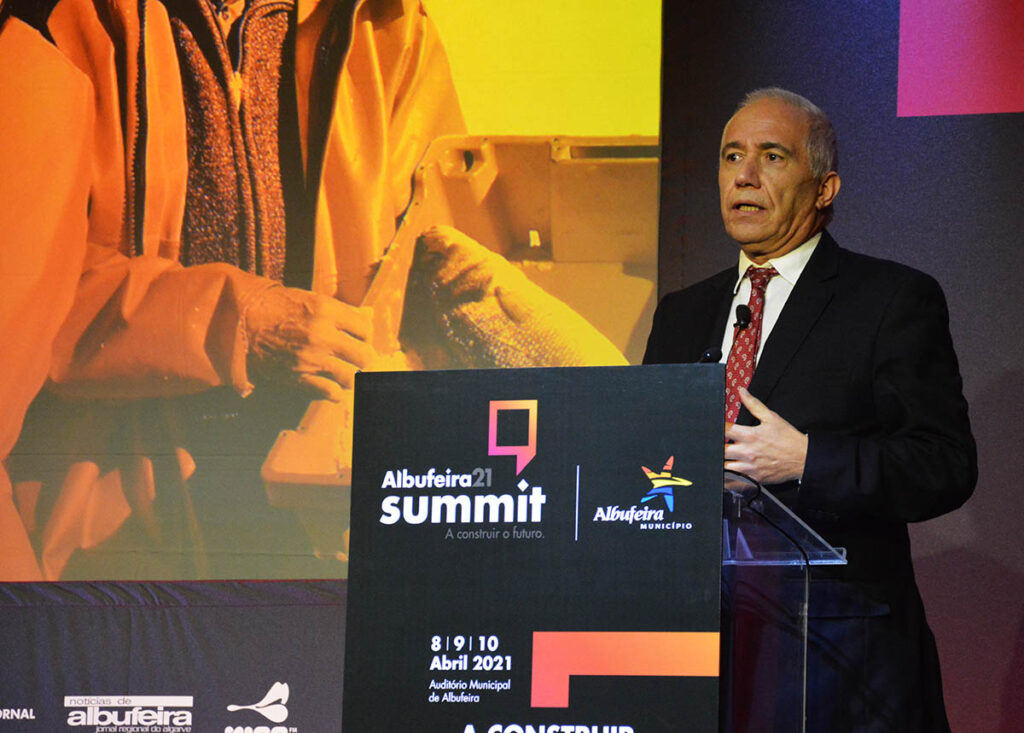
The second afternoon panel, on Health, began with a lecture by Paulo Morgado, president of the Regional Health Administration (ARS) of the Algarve, who left words of hope, but also warning: «the pandemic will pass, the pandemic situation will resolve it will go away, but that does not mean that the disease will go away. It will continue with us and condition our lives».
And which world is this that will emerge from the pandemic? For now, it is a world in which "people tend to distrust institutions more" and "who governs them".
The "pandemic habits" will "tend to continue in our lives", namely the "physical distancing" in some situations, and the "use of the mask".
For the president of ARS Algarve, it is «more or less evident that it is necessary to continue to invest more and more in the Social State. States that do not invest, or that have invested little, are the ones that are going through this crisis with more difficulty».
«In the future, to have more resilience when we have a new crisis», it is necessary to create a «stronger Social State, more prepared and more adequate Health Services, so that we can react better».
One of the lessons to be learned from the current situation, said Paulo Morgado, is the need to "create social support networks and include health care, namely primary care, those closest to it."
It will require "people-focused services, in proximity, but also having the ability to handle problems at a distance, effectively."
Therefore, he argued, one of the "good things" that emerges from this pandemic is the "perception" that the use of telemedicine and telehealth can be increased.
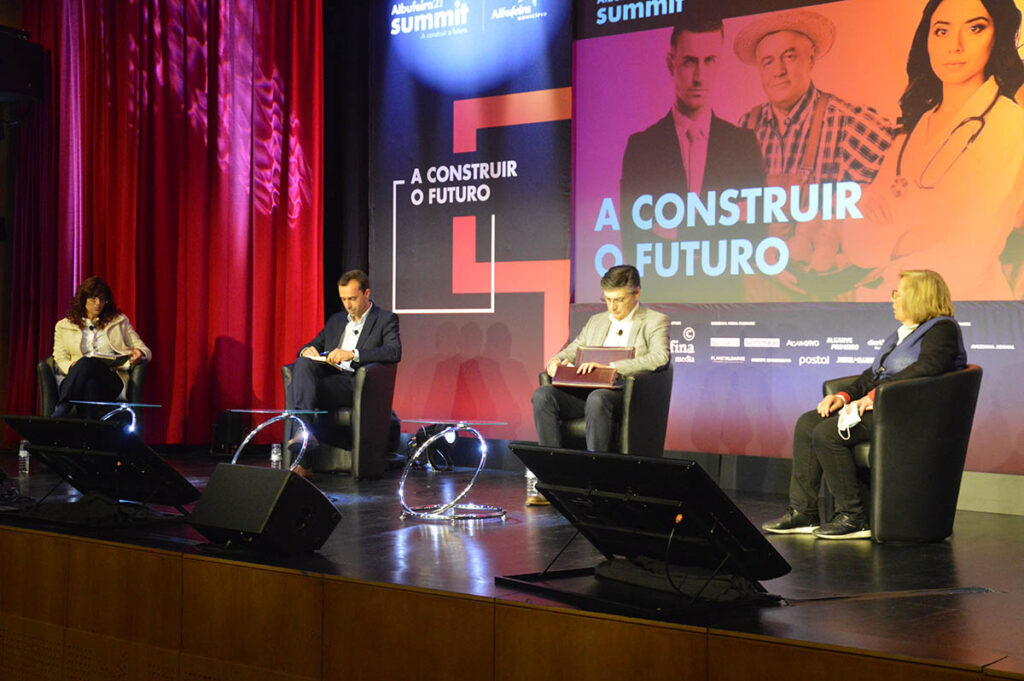
This theme would then be addressed in the panel on Health, which was moderated by Sílvia Cabrita, director of ACES Central, and as speakers Margarida Feteira, director of the Albufeira Family Health Unit, Jorge Queiroz, owner of Aqualab, and André Pinto, administrator Hospital Lusíadas.
Jorge Queiroz spoke of the “challenge of adaptation to the entire pandemic situation”, which had to be addressed by his laboratory. "Currently, we have all this extra activity that has to do with Covid analytics", in addition to the other normal activity.
André Pinto highlighted the breakdown verified in the private health unit for which he is responsible, not least because an important portion of the users were tourists. But, he stressed, "the diseases continued to exist and the effects of not using health services will be felt in the future."
Margarida Feteira addressed a topic that had already been discussed before, stressing that there will be a "challenge in the area of mental health", defending the need to hire more professionals in the field of Psychology and to "work in partnership with teams from the municipality, from the IPSS and the Health Center».
"The pandemic has exposed the existing needs" in the health sector, defended Jorge Queiroz, adding that "we should be better prepared for future pandemics."
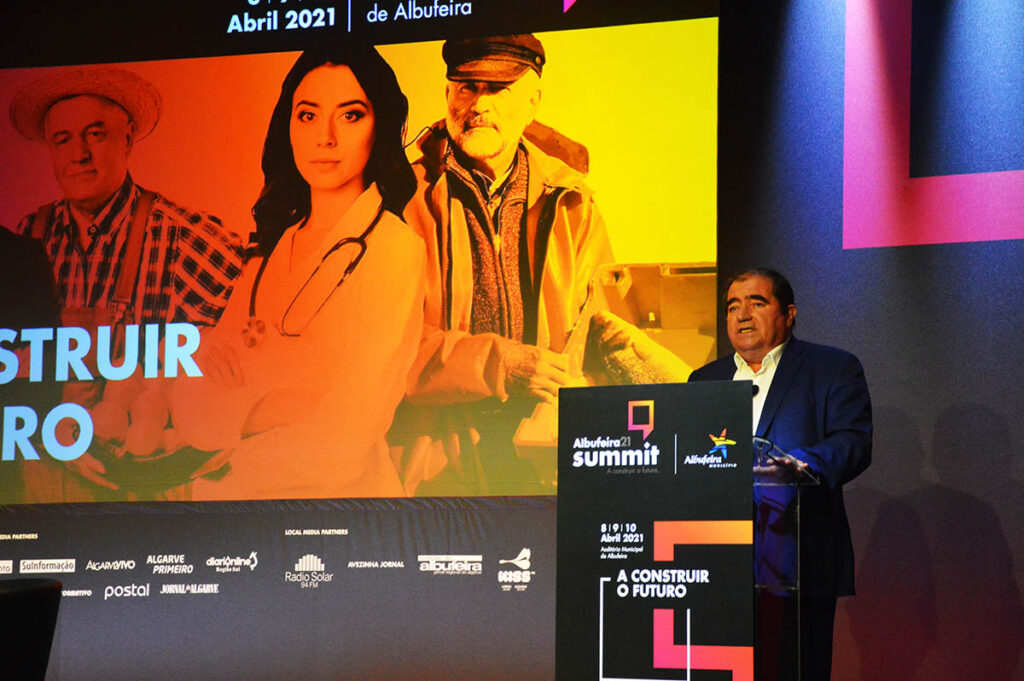
Until the beginning of the evening, the Albufeira Summit's intense program also included a panel on Natural and Cultural Heritage, which had as a speaker Filipa Mascarenhas Neto, from the Patrimonial and Cultural Directorate, and another on Youth and Sports, where the speaker was Custódio Moreno , regional director of the IPDJ. The first day ended with a discussion on Security and Civil Protection, whose speaker was Vítor Vaz Pinto, Regional Commander of the Algarve for Emergency and Civil Protection.
This Friday, the 9th, the Albufeira Summit will have as its themes Tourism, Hotels and Restaurants, Tourism Entertainment, Industry, Commerce and Services, Employment and Entrepreneurship, Agriculture and Sea, Education and Vocational Training, Urban Transport, Hygiene Urban, Energy Efficiency, Water and Sanitation.
Among the scheduled speakers are João Fernandes, president of the Algarve Tourism Region, António Saraiva, president of the Business Confederation of Portugal, Madalena Feu, regional delegate of the IEFP, Pedro Valadas Monteiro, regional director of Agriculture, Alexandre Lima, delegate Élio Vicente, from ANIMA, or the hotelier José Carlos Leandro.
On Saturday, at closing time, there will be talks about Climate Transition, Digital Transition, the Portugal 2030 strategy and, finally, about the launch of the Albufeira brand and the Albufeira Safe plan. On this last day, some of the guests will be Francisco Ferreira, leader of the ZERO association, Miguel Castro Neto, professor at Universidade Nova de Lisboa, João Aragão Azevedo, secretary of State for Digital Transition, or José Apolinário, president of CCDR Algarve.
All Albufeira Summit sessions are being broadcast live on the Facebook page of the Albufeira Chamber and can be followed by clicking here.
To know the program in detail, click here (PDF).
To review the first day click here
More information here.
Photos: Elisabete Rodrigues | Sul Informação
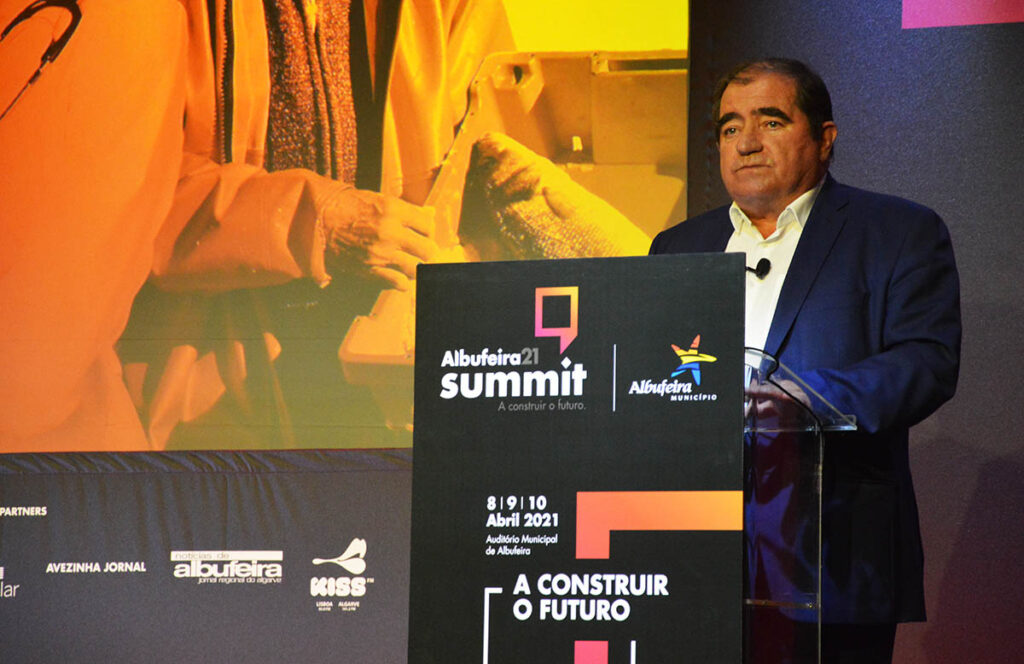
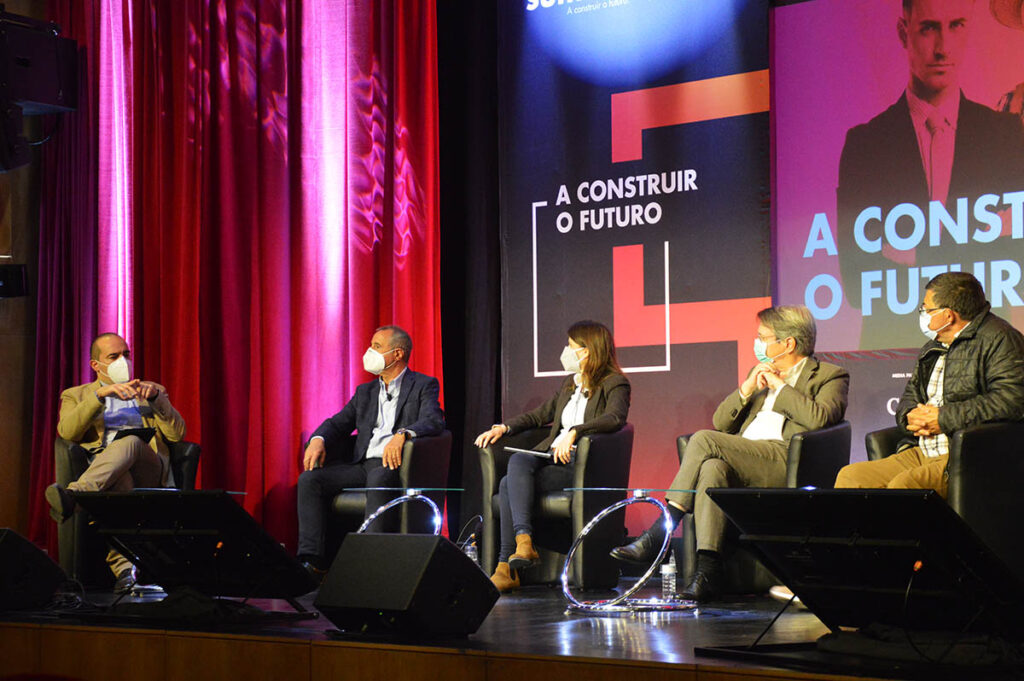
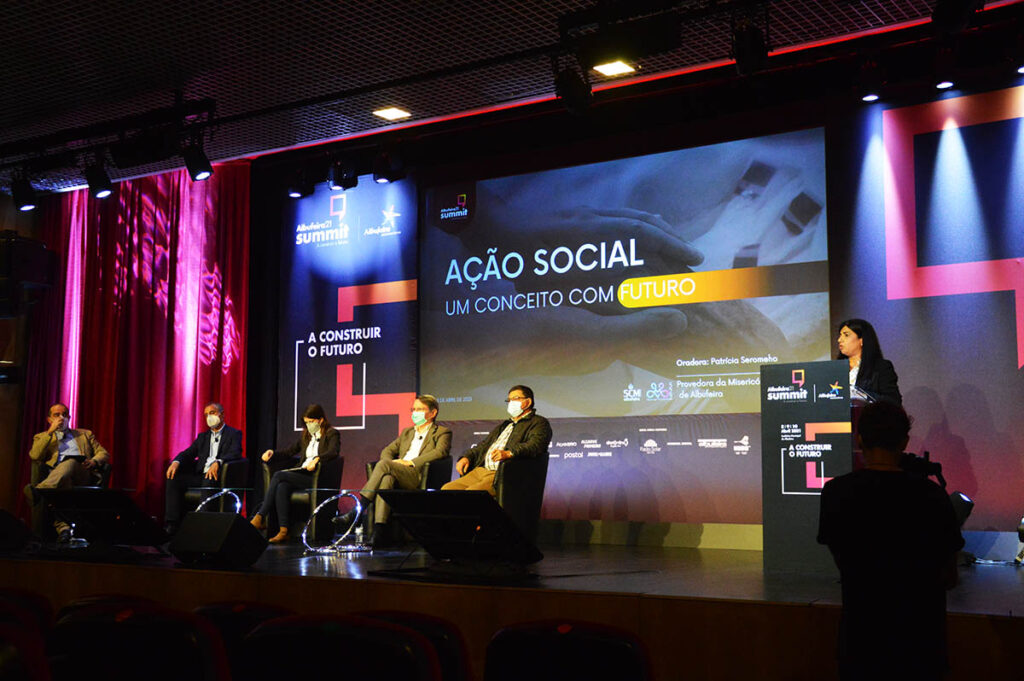



















Comments